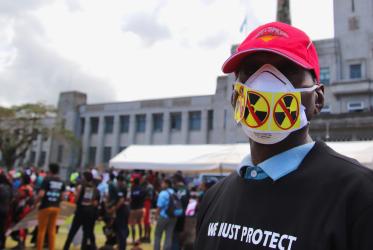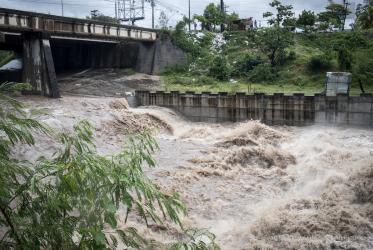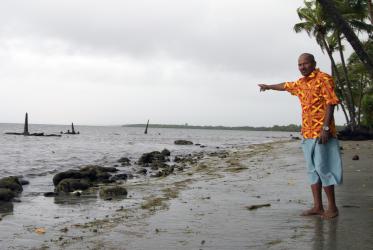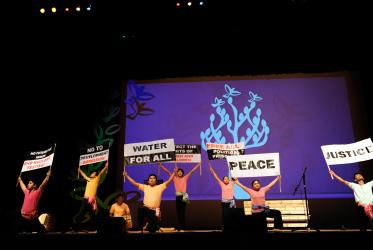Displaying 1 - 20 of 52
29 August 2023
Unity is key when health crisis poses new challenges in Asia
28 February 2022
Global webinar will discuss environment, agriculture and water
03 December 2020
CCIA meets in Brisbane with focus on Pacific regional priorities
19 February 2020
In Fiji, young people ‘walk the talk’ with advocacy
12 September 2019
“Economy of life” lifted up at special school in Indonesia
22 August 2019
WCC represented at G20 Interfaith forum in Tokyo
13 June 2019
WCC condemns massacre of farmers in Philippines
12 April 2019
Ecumenical School on Governance, Economics and Management (GEM) for an Economy of Life
19 - 30 August 2019
Jakarta, Indonesia
All pilgrim routes lead to COP24
11 December 2018











